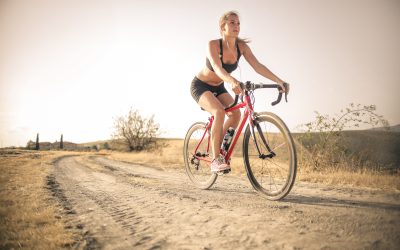Neuroscience is reshaping our approach to pain relief, offering fresh perspectives on chronic pain management. By delving into the brain’s intricate role in pain perception, we can revolutionize how we understand and address discomfort. This shift enables us to explore innovative strategies that align with the body’s neurological responses, potentially transforming conventional approaches to relief. The fusion of neuroscience and pain opens a gateway to unparalleled insights and breakthroughs in addressing persistent discomfort.
Pain and Neuroscience
Brain Connection
The brain is closely linked to how we perceive and interpret pain. It plays a pivotal role in our experience of pain, influencing the intensity and duration of discomfort. By studying the brain, scientists can gain valuable insights into pain perception, leading to the development of more effective strategies for pain relief. For example, understanding how certain areas of the brain process pain signals can help in targeting those specific regions for treatment.
Chronic Pain Neuroscience Neuroscience offers crucial insights into the mechanisms underlying chronic pain. Through research in this field, experts are gaining a deeper understanding of why chronic pain develops and persists. This knowledge opens up possibilities for more targeted and tailored treatments that address the specific neurological processes involved in chronic pain conditions.
Neuroplasticity Role
Neuroplasticity – the brain’s ability to reorganize itself by forming new neural connections throughout life – significantly impacts chronic pain development and persistence. The rewiring of neural pathways contributes to the long-term nature of chronic pain, making it challenging to treat using traditional methods alone. However, harnessing neuroplasticity presents new opportunities for innovative approaches to alleviate persistent discomfort.
Addressing Neuroinflammation Managing chronic pain effectively involves addressing neuroinflammation, which refers to inflammation within the nervous system. This type of inflammation is known to contribute to persistent pain conditions by sensitizing neurons involved in transmitting painful stimuli. Targeting neuroinflammation holds promise as a way to alleviate symptoms associated with chronic pain, offering potential avenues for improved management strategies.
Retraining the Brain
Chronic Treatment
Effective treatment for chronic pain requires a comprehensive approach. It involves addressing both physical and psychological factors. A multidisciplinary approach is essential for successful long-term management. This means that healthcare providers from different specialties work together to create a customized treatment plan for each patient. For example, a patient with chronic back pain might benefit from physical therapy to address the physical aspect of their pain, while also receiving counseling or cognitive behavioral therapy to address any associated emotional distress.
Cognitive Approaches
Cognitive approaches focus on changing thoughts and beliefs about pain. By shifting cognitive patterns, individuals can positively impact their chronic pain management. These techniques empower individuals to take an active role in their own healing by teaching them how to reframe negative thoughts related to their pain into more positive and manageable ones.
Neurorehabilitation Techniques
Neurorehabilitation techniques aim to restore normal function in the nervous system by retraining the brain and reducing chronic pain symptoms. Incorporating neurorehabilitation into treatment plans can lead to significant improvements in patients’ quality of life by helping them regain lost functions due to neurological conditions or injuries.
Cognition-Targeted Training
Cognition-targeted training focuses on improving cognitive function related to pain perception and coping mechanisms through specific exercises designed to enhance cognitive abilities that influence how individuals perceive and manage their pain.
Advances in Pain Management
Chronic Management
Effective chronic pain management requires ongoing care and support. It’s not just about temporary relief; it’s a long-term commitment to improving the patient’s overall well-being. Managing chronic pain involves finding a balance between symptom control and quality of life, ensuring that the treatment doesn’t compromise other aspects of daily living. A comprehensive management plan is necessary for long-term relief, encompassing various approaches such as medication, physical therapy, psychological support, and lifestyle adjustments.
Genetics can influence an individual’s susceptibility to chronic pain conditions. Understanding genetic factors can help personalize treatment approaches, allowing healthcare professionals to tailor interventions based on each patient’s unique genetic makeup. Genetic research provides insights into the underlying causes of chronic pain, paving the way for more targeted and effective treatments that address the root biological mechanisms contributing to persistent pain.
Abnormal Systems
Chronic pain often involves abnormalities in the nervous system. These abnormalities can manifest in different ways and at various levels of neural processing, making it crucial to identify and address them for effective treatment. By targeting these abnormalities through specialized interventions like nerve blocks or neuromodulation techniques, healthcare providers can directly tackle the specific neural dysfunctions contributing to prolonged discomfort.
Nervous System Sensitivity
The nervous system becomes hypersensitive in chronic pain conditions. This heightened sensitivity amplifies pain signals within the brain and spinal cord, leading to heightened discomfort even with minor stimuli or movements. Reducing nervous system sensitivity is a key goal in managing chronic pain; by doing so, healthcare providers aim to alleviate exaggerated responses to painful stimuli and restore a more balanced perception of sensory input.
Emotional and Structural Impacts
Emotions and Arthritis
Emotions play a crucial role in how individuals perceive and experience arthritis-related pain. The emotional well-being of arthritis patients significantly impacts the intensity and perception of their symptoms. For instance, stress, anxiety, or depression can exacerbate the sensation of pain, making it more challenging to manage. By addressing these emotional factors through counseling, support groups, or mindfulness techniques, overall pain management for arthritis patients can be improved.
Understanding musculoskeletal structures is essential for unraveling the complexities of chronic pain conditions such as arthritis. Musculoskeletal abnormalities contribute to persistent pain conditions experienced by individuals. Having an in-depth knowledge of musculoskeletal anatomy enables healthcare professionals to develop targeted interventions that address specific structural issues contributing to chronic pain.
Spinal Pain Cognition
Cognitive processes have a significant influence on how individuals perceive and respond to spinal pain. Addressing cognitive aspects such as fear-avoidance beliefs or catastrophic thinking can enhance outcomes in spinal pain management. Integrating cognitive strategies with traditional treatments like physical therapy or medication has been shown to improve overall efficacy in managing spinal pain.
Brain Structure Significance
The structure of the brain plays a pivotal role in the development of chronic pain conditions. Specific brain regions are involved in processing and modulating signals related to pain perception. Understanding the significance of brain structure helps identify potential targets for interventions aimed at providing relief from chronic pain.
Sensitization and Rehabilitation
Sensitized Brain Exploration
Exploring the sensitized brain provides crucial insights into chronic pain mechanisms. When the brain becomes sensitized, it alters how it processes and responds to pain signals. Understanding these intricacies is essential for developing effective treatment approaches. For instance, in conditions like fibromyalgia or neuropathic pain, the brain’s heightened sensitivity amplifies normal sensations into severe discomfort.
Unraveling the complexities of sensitization can lead to groundbreaking treatment methods that target the specific changes occurring in a sensitized brain. By understanding how neural pathways adapt and change in response to persistent pain signals, researchers can develop interventions aimed at reversing these alterations.
Clinical Integration
Integrating neuroscience findings into clinical practice is pivotal for improving patient outcomes. Bridging the gap between research and its practical application enhances overall pain management strategies. For example, incorporating neuroscientific principles enables healthcare professionals to tailor treatments based on an individual’s unique neurological responses to pain stimuli.
By integrating neuroscience into clinical care, medical practitioners can adopt a more personalized approach that considers each patient’s distinct neurological profile when devising treatment plans. This integration ensures that patients receive tailored interventions aligned with their specific neurobiological responses to pain.
Treatment Transformation
Neuroscience is revolutionizing our approach to pain treatment, offering new hope for patients suffering from chronic conditions. Innovative treatments grounded in neuroscience principles present unprecedented opportunities for enhancing pain relief options available today.

Future Prospects in Pain Relief
Without Chronic Pain
Understanding chronic pain is crucial even for those without personal experience. Empathy and knowledge about chronic pain help support individuals who suffer from it. Raising awareness about chronic pain benefits society as a whole.
Chronic pain can be debilitating, affecting millions of people worldwide. Even if we don’t personally experience chronic pain, understanding its impact helps us empathize with those who do. By educating ourselves and others about the challenges of living with chronic pain, we create a more supportive environment for affected individuals.
Persistent Management Implications
Effective management strategies are essential for persistent pain conditions. Long-term management requires ongoing support and tailored interventions. Recognizing the unique challenges of persistent pain informs better treatment approaches.
Managing persistent pain goes beyond quick fixes; it involves developing comprehensive, personalized plans to address the specific needs of each individual. Tailored interventions take into account not only physical symptoms but also psychological and emotional aspects, ensuring holistic care that improves overall well-being.
Chronic Spinal Alleviation
Alleviating chronic spinal pain involves addressing both physical and psychological factors. Comprehensive treatment plans aim to reduce spinal pain and improve quality of life. Targeted interventions can provide significant relief for individuals with chronic spinal conditions.
For example, integrating physical therapy with cognitive-behavioral techniques can enhance mobility while addressing the emotional toll associated with chronic spinal issues. By combining various approaches, healthcare providers offer multifaceted solutions that target different aspects contributing to spinal discomfort.
Embracing Neuroscientific Interventions
Modern Approach Promise
Modern approaches to pain relief hold promise for better outcomes. Incorporating neuroscience into treatment models offers more effective solutions. By understanding the intricate workings of the brain and nervous system, healthcare professionals can tailor treatments to address the specific mechanisms that underlie an individual’s pain experience. For example, instead of relying solely on traditional medications, doctors may now use neuroimaging techniques to identify the precise brain regions involved in a patient’s chronic pain and then target those areas with personalized interventions.
Neuroscience-based interventions also offer hope for individuals who have not found relief through conventional methods. By embracing modern approaches grounded in neuroscience, patients with chronic pain can potentially experience significant improvements in their quality of life.
Intervention Potential
Neuroscience interventions have the potential to revolutionize pain management by providing targeted relief based on individual neurological profiles. This means that rather than employing a one-size-fits-all approach, healthcare providers can develop personalized treatment plans tailored to each patient’s unique neural responses to pain. For instance, advanced imaging technologies allow clinicians to visualize how a person’s brain processes and perceives pain signals—information that can be used to devise highly specific intervention strategies aimed at modulating these neural pathways.
Harnessing this potential could lead not only to improved outcomes but also greater overall satisfaction among patients struggling with chronic pain.
Revolutionizing Relief
Neuroscience is revolutionizing how we understand and provide pain relief by offering innovative approaches rooted in a deep understanding of neurological processes related to pain perception and modulation. These novel strategies are transforming outcomes for individuals living with persistent or recurrent pain conditions by addressing the underlying neural mechanisms driving their discomfort.
A New Era of Pain Relief
Diverse Expertise
The intersection of neuroscience and pain brings together diverse fields of study. Collaborations between experts in different disciplines, such as neuroscientists, psychologists, and medical professionals, enhance pain research. For instance, a collaboration between a neuroscientist and a pharmacologist might lead to the discovery of new pain-relief medications.
Neuroscience also intersects with other areas like technology and engineering. This multidisciplinary approach fosters innovation by combining knowledge from various fields to tackle complex issues related to pain management.
Groundbreaking Discoveries
Exploring the intersection of fields leads to groundbreaking discoveries in pain relief. When neuroscientists collaborate with geneticists or biotechnologists, they can uncover novel genetic factors contributing to chronic pain conditions. These findings could pave the way for personalized treatments targeting specific genetic markers associated with certain types of chronic pain.
This collaborative approach has the potential to revolutionize how we understand and treat pain. By leveraging insights from multiple disciplines within neuroscience, researchers are at the forefront of developing innovative therapies that address the complexities of chronic pain more effectively.
Valuable Understanding
Neuroscience provides valuable insights into effective pain treatment strategies by unraveling the intricate mechanisms underlying pain perception and processing in the brain. For example, studies on neural plasticity have revealed how chronic pain alters brain circuits over time, leading to long-lasting changes in sensory processing.
Understanding these underlying mechanisms is crucial for developing targeted interventions that address both the physical and psychological aspects of persistent pain conditions.
Improved Patient Outcomes
Incorporating neuroscience findings into clinical practice improves patient outcomes by guiding healthcare professionals toward evidence-based treatment approaches. By integrating cutting-edge neuroscience research into their practice, clinicians can tailor treatments based on individual patients’ neurological profiles rather than relying solely on traditional symptom-based assessments.
Conclusion
You’ve delved into the intricate relationship between neuroscience and pain, uncovering the transformative potential of neuroscientific interventions in pain relief. From retraining the brain to understanding emotional and structural impacts, the future prospects for pain management are promising. It’s clear that embracing these neuroscientific approaches heralds a new era of pain relief, offering hope for those grappling with chronic discomfort.
As you navigate the landscape of pain relief, consider exploring these neuroscientific interventions and advocating for their integration into mainstream healthcare. By staying informed and championing innovative approaches, you can contribute to reshaping the narrative around pain management. Together, let’s pave the way for a future where individuals can find solace from pain through the remarkable insights of neuroscience.

Exploring the Intersection of Neuroscience and Pain Management: Transform Your Life with MedicinEvolution’s Innovative Approaches!
Are you grappling with the complexities of chronic pain, hindered by neurological discomfort, and seeking relief? MedicinEvolution stands at the forefront of integrating neuroscience and pain management to offer you groundbreaking solutions. By embracing the latest advancements in neuroscience, MedicinEvolution addresses the root causes of your neurological pain, facilitating a more comprehensive and effective healing process. Bid adieu to the constraints of neural imbalances, chronic discomfort, and the repetitive strain that impacts your daily life—as MedicinEvolution navigates the intricate pathways of your nervous system, guiding you towards profound recovery. Their expert techniques are designed to shift you away from the persistent pain and neurological challenges that have been diminishing your quality of life.
If you’re battling with ongoing neural discomfort, stiffness, or the frustrating limitations of chronic pain, MedicinEvolution’s tailored approach, grounded in the principles of neuroscience, is specifically designed to meet your individual needs. Don’t let the challenges of neurological pain define your life’s story—take charge and schedule your consultation with MedicinEvolution today! Embark on a journey with their neuroscience-based pain management strategies and start moving towards a more vibrant, pain-free existence. Your body and mind, liberated from the shackles of pain, will surely express gratitude!





